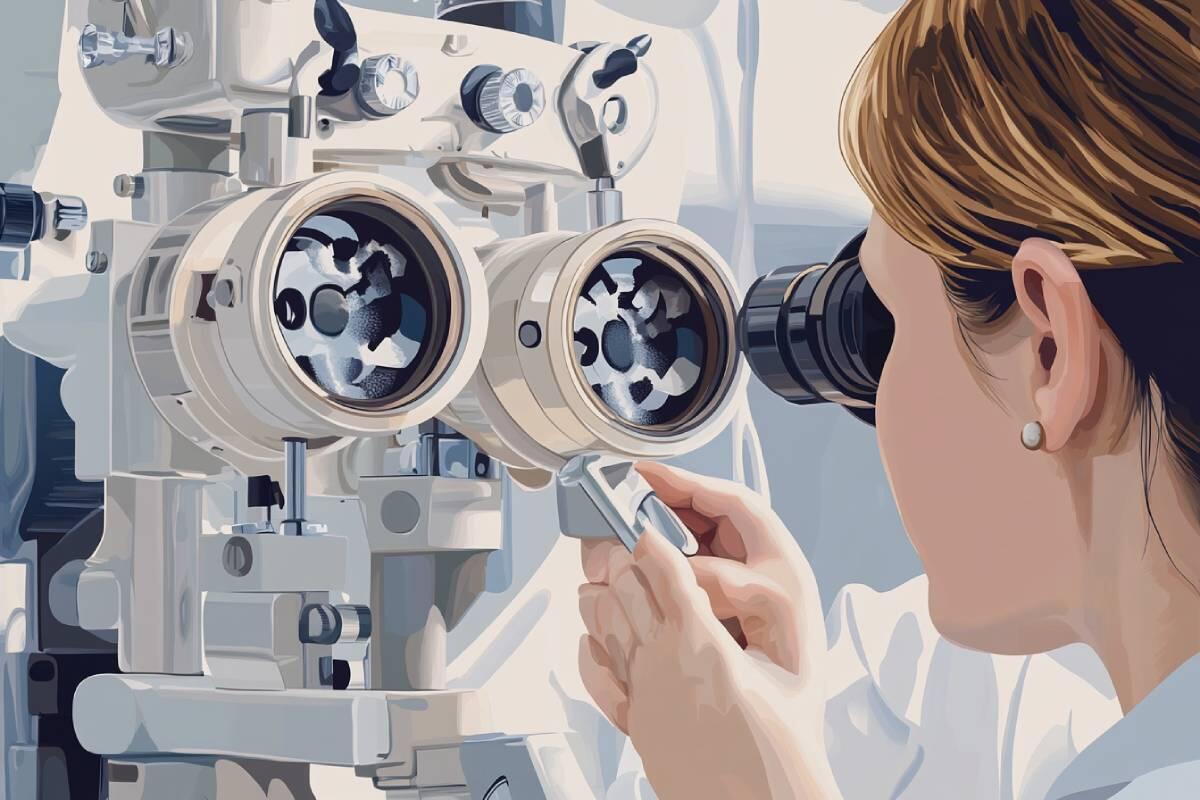Eye Exams: How to Take Care of Your Eye Health at Any Age
Our vision is one of the most important senses for ensuring quality of life, yet we often neglect it.
Taking care of eye health is not just about seeing well, but also about preventing serious problems that could permanently affect vision.
And what is the first step to achieving this? Getting regular eye exams.
In this article, we will explore the importance of eye exams, how they work, and how they can be adapted for different life stages. If you want to see the world clearly for many years to come, keep reading!
Why Are Eye Exams Essential?
Many people only visit an Ophthalmologist when they experience vision problems or notice eye discomfort.
However, some eye diseases, such as glaucoma and diabetic retinopathy, develop silently and only show symptoms in advanced stages.
📌 Eye exams allow for early detection of these conditions, increasing the chances of effective treatment.
Additionally, they help correct common issues such as myopia, hyperopia, and astigmatism, ensuring clear vision in daily life.
When Should You Start Getting Eye Exams?
Eye health should be monitored from an early age. Here are the recommendations for different life stages:
👶 Babies and Children
✔ At birth, the red reflex test (eye screening test) is essential to detect congenital issues like pediatric cataracts.
✔ The first comprehensive eye exam should be done before age 3 or if vision problems arise.
🧑🎓 Young Adults and Adults
✔ Eye exams should be performed every two years, unless specific symptoms appear or there is a family history of eye diseases.
✔ At this stage, it is important to correct refractive errors and prevent eye strain, which is common due to excessive screen use.
👵 Seniors
✔ As we age, the risk of cataracts, glaucoma, and age-related macular degeneration (AMD) increases.
✔ Annual eye exams are highly recommended to prevent and treat these conditions early.
Main Eye Exams and Their Functions
Now that you know when to get them, it is important to understand which exams are most common and what they assess:
1. Refraction Test
✔ A standard test to detect myopia, hyperopia, astigmatism, and presbyopia.
✔ Using special lenses, the ophthalmologist assesses visual clarity and may prescribe glasses or contact lenses.
2. Tonometry
✔ Measures intraocular pressure, which is crucial for diagnosing glaucoma.
✔ A quick and painless procedure.
3. Fundoscopy (Ophthalmoscopy)
✔ Also known as the fundus exam.
✔ Evaluates the retina and optic nerve, playing a key role in diagnosing diabetes and hypertension.
4. Biomicroscopy
✔ Using a slit lamp, the doctor examines eye structures such as the cornea, iris, and lens.
✔ Essential for detecting cataracts and other ocular conditions.
5. Visual Field Test
✔ Assesses the ability to see objects in different areas of the visual field.
✔ Commonly used for the diagnosis and monitoring of glaucoma.
Tips for Maintaining Eye Health in Daily Life
Besides regular eye exams, adopting healthy habits can help maintain good vision:
✔ Wear sunglasses: Choose models with UVA and UVB protection.
✔ Avoid rubbing your eyes: This can cause irritation and increase the risk of infections.
✔ Adjust screen brightness: When using digital devices, regulate brightness and avoid dimly lit environments.
✔ Rest your eyes: Every 20 minutes of screen use, look at a distant object for 20 seconds.
✔ Eat a healthy diet: Include vitamins A, C, and E, found in carrots, oranges, and nuts, to strengthen vision.
What to Expect During an Eye Exam?
If you've never had an eye exam, there’s no need to worry. The consultation is usually quick and simple.
👁️ The ophthalmologist will:
✔ Ask questions about your medical history.
✔ Perform vision tests to assess visual acuity.
✔ Apply eye drops to dilate the pupils, if necessary, to examine the back of the eye.
If an eye condition is detected, the doctor will recommend the best treatment, which may include glasses, medication, or surgery.
Eye Exams in Different Contexts
Eye health goes beyond routine check-ups. In some situations, eye exams play an even more crucial role:
✔ Drivers: Eye exams are required for driver's license renewal.
✔ Athletes and sports professionals: Vision assessments can correct deficiencies that impact performance.
✔ Pregnant women: During pregnancy, there is a higher risk of ocular complications, such as increased eye pressure, making medical follow-ups essential.
Conclusion
Taking care of eye health at any age requires attention and regular exams.
📌 Eye exams are essential for preventing diseases, correcting vision problems, and ensuring a safer, fuller life.
So, don’t postpone your consultation! Schedule your eye exam and take care of your vision.
✨ Seeing the world clearly is a privilege everyone deserves! 👁️💙
